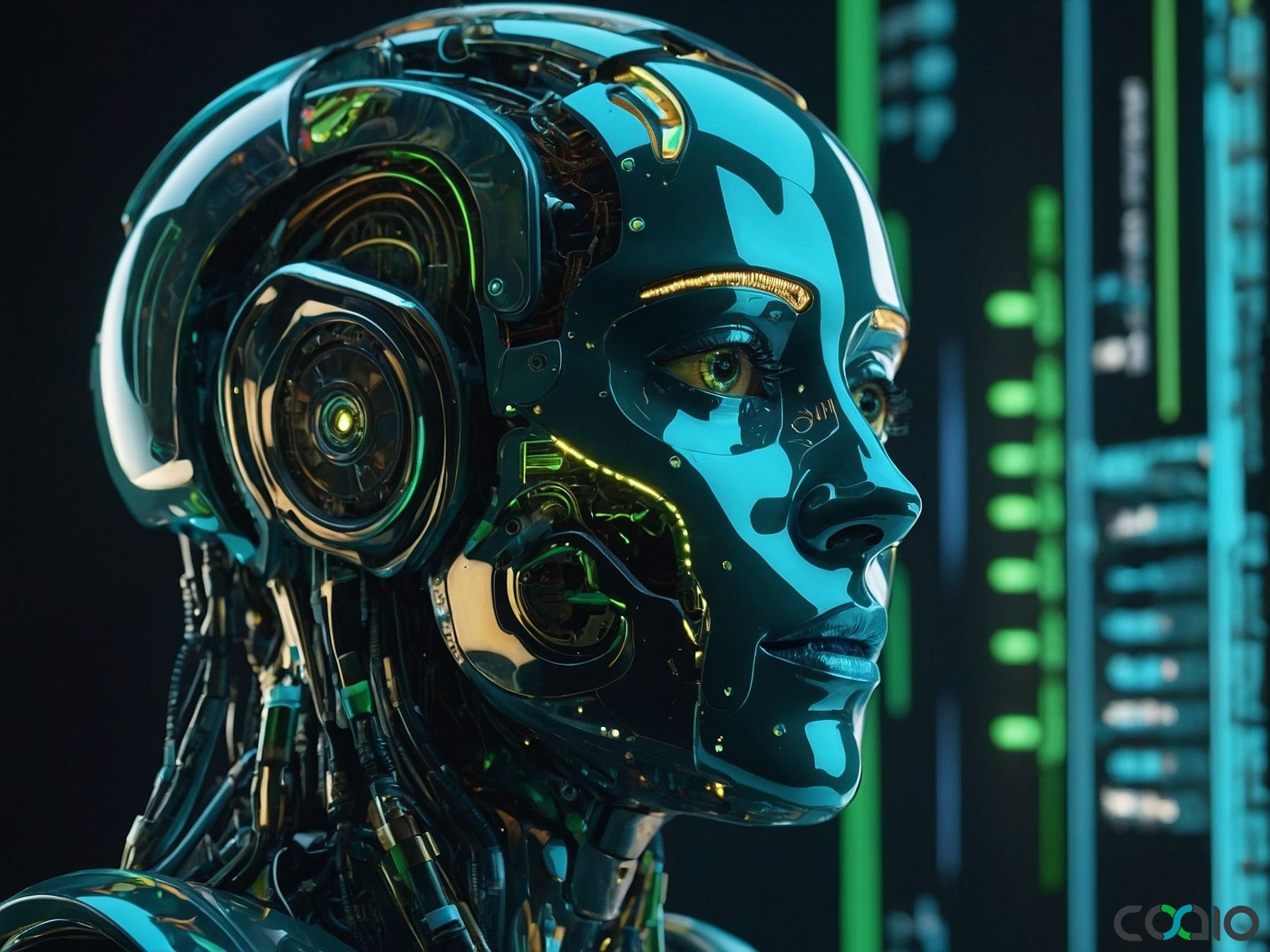
AI-Driven Innovations Transforming Software Development in 2025
In the fast-paced world of technology, software development continues to evolve at an unprecedented rate, driven by advancements in artificial intelligence, integration tools, and strategic investments. As of October 31, 2025, the latest news highlights how companies are tackling integration challenges, measuring AI’s impact on productivity, and navigating the volatile landscape of tech funding. This article delves into these developments, exploring their implications for developers, startups, and businesses aiming to stay competitive in a digital-first economy.
The Rise of AI Integration in SaaS Platforms
One of the most significant announcements in recent weeks comes from Workato, an integration orchestration company, which has launched its Enterprise MCP (Multi-Channel Platform) specifically designed for SaaS platforms. This tool addresses a critical pain point for organizations investing heavily in AI agents. As businesses pour resources into AI-driven automation, the challenge of seamlessly integrating these agents with existing systems often leads to inefficiencies and delays. Workato’s solution promises to simplify this by converting existing workflows and integrations into agent-ready environments, potentially reducing the time and cost associated with custom development.
According to the announcement on SD Times, organizations are grappling with the “high hurdle” of AI adoption, where agents must interact flawlessly with various business systems Read more. This launch is timely, as AI agents are becoming essential for tasks like data processing, customer service automation, and predictive analytics. For software developers, this means faster deployment cycles and more robust applications, but it also underscores the need for specialized expertise in integration. In an era where agility is key, tools like Enterprise MCP could empower teams to build scalable software without overhauling their entire infrastructure.
The broader impact on the industry is profound. With AI integration becoming a standard expectation, developers must adapt to new paradigms that prioritize interoperability. This shift could lead to a surge in demand for platforms that handle complex integrations, ultimately fostering innovation in sectors like e-commerce, healthcare, and finance. For instance, a retail company could use AI agents to optimize supply chain logistics in real-time, directly tied to their SaaS CRM systems. As we see more tools like Workato’s entering the market, the software development landscape is shifting toward more automated, user-centric solutions.
Benchmarking AI Productivity in Software Engineering
Another key development is JetBrains’ release of the Developer Productivity AI Arena (DPAI Arena), an open benchmarking platform aimed at quantifying the real-world benefits of AI tools in software engineering. JetBrains, known for its popular IDEs like IntelliJ IDEA, has created this tool to address the limitations of current AI benchmarks, which often rely on simulated tasks rather than actual development scenarios. The platform allows developers to test how well AI assistants handle tasks such as code generation, bug fixing, and optimization, providing measurable data on productivity gains.
As detailed in the SD Times report, traditional benchmarks for large language models (LLMs) fall short because they don’t account for the nuances of real-world software projects Read more. This new platform could revolutionize how teams evaluate AI tools, offering transparency and empirical evidence of their value. For software developers, this means better decision-making when selecting AI-powered assistants, potentially leading to more efficient workflows and higher-quality code.
The implications extend beyond individual developers. In a competitive market, companies can use these benchmarks to optimize their AI strategies, ensuring that investments in tools translate to tangible results. For example, a startup building a mobile app could leverage DPAI Arena to compare AI models and choose one that accelerates feature development without compromising security. This trend highlights a growing emphasis on data-driven development practices, where metrics guide the adoption of emerging technologies. As AI continues to permeate software engineering, platforms like DPAI Arena will play a crucial role in standardizing productivity measurements across the industry.
Major Investments Shaping the AI Landscape
Tech investments are also making headlines, with Nvidia reportedly committing up to $1 billion to Poolside, an AI-focused company. Nvidia, a giant in graphics processing and AI hardware, is doubling down on its existing stake in Poolside, which previously raised $500 million in a Series A round in 2024. This move underscores the increasing convergence of hardware and software in AI development, as Poolside specializes in AI infrastructure that enhances computational efficiency.
According to TechCrunch, this investment reflects Nvidia’s strategy to bolster AI innovation amid growing demand for advanced computing solutions Read more. For the software development community, this could mean access to more powerful tools for training models and running complex simulations. Startups, in particular, stand to benefit from such investments, as they often lack the resources to develop cutting-edge AI capabilities in-house. This funding wave is a reminder of how strategic partnerships and investments are accelerating the pace of innovation, potentially leading to breakthroughs in areas like machine learning and autonomous systems.
However, not all news in the investment space is positive. Navan’s recent IPO, which tumbled 20% on its debut, highlights the risks associated with going public in a volatile market. The company, valued at around $4.7 billion post-IPO compared to its previous $9.2 billion private valuation, navigated a historic launch under SEC shutdown workarounds Read more. This event serves as a cautionary tale for software firms eyeing public markets, emphasizing the need for solid financial footing and market timing. For developers and entrepreneurs, it reinforces the importance of building resilient business models that can withstand economic fluctuations.
The Human Element in Tech Transitions
While much of the focus is on tools and investments, human factors remain critical in software development. The story of Casey Means, who missed a Senate hearing on her surgeon general nomination due to going into labor, as reported by Ars Technica, illustrates how personal events can intersect with professional trajectories in tech and policy Read more. This incident, while not directly related to software, highlights the broader challenges of work-life balance in high-stakes industries, including tech. As development teams increasingly rely on AI for efficiency, ensuring that human expertise is not overlooked is essential for sustainable progress.
In this context, the evolving role of outsourcing in software development cannot be ignored. For instance, when integrating AI tools like those from Workato or JetBrains, companies often need external expertise to manage complex projects without straining internal resources. This is where specialized services can make a difference, helping teams navigate the intricacies of AI adoption and productivity enhancement.
As we wrap up this exploration of 2025’s software development news, imagine a world where innovative ideas flourish without the burdens of operational hurdles. That’s the essence of a forward-thinking approach: providing founders with the tools and support to turn visions into reality. By focusing on efficient, risk-minimized strategies, teams can harness AI’s potential while minimizing wasted efforts, much like how a well-orchestrated symphony brings harmony to complex compositions.
About Coaio
Coaio Limited is a Hong Kong-based tech firm that specializes in outsourcing software development and building expert teams in Vietnam. We offer comprehensive services including business analysis, competitor research, risk identification, design, development, and project management, delivering cost-effective, high-quality software solutions for startups and growth-stage companies. Our user-friendly designs and tech management expertise cater to clients in the US and Hong Kong, helping them streamline operations and focus on their core vision. By partnering with us, you can access a seamless path to software creation, reducing risks and resources wasted, so you can bring your ideas to life efficiently.
 English
English
 Français
Français
 Español
Español
 廣東話
廣東話
 中文
中文
 日本語
日本語
 한국어
한국어
 العربية
العربية
 Deutsch
Deutsch

